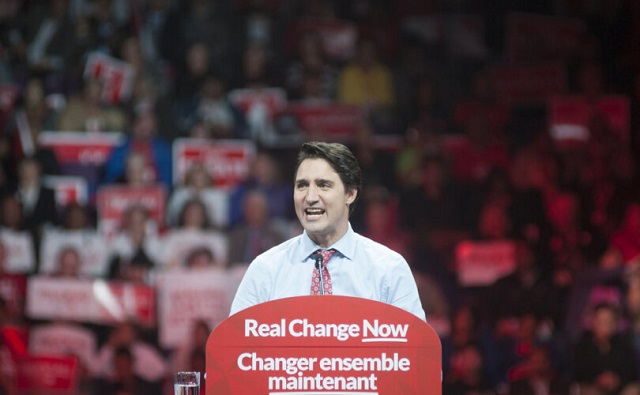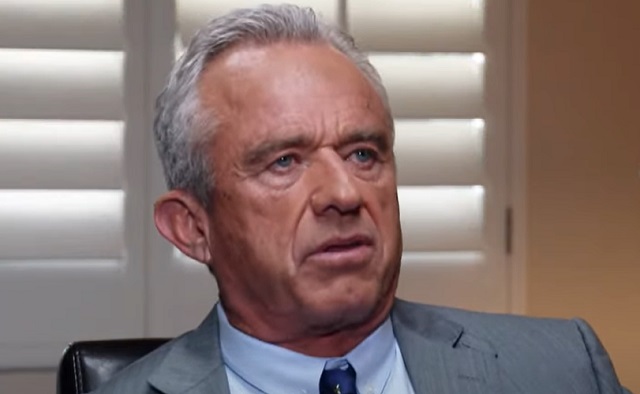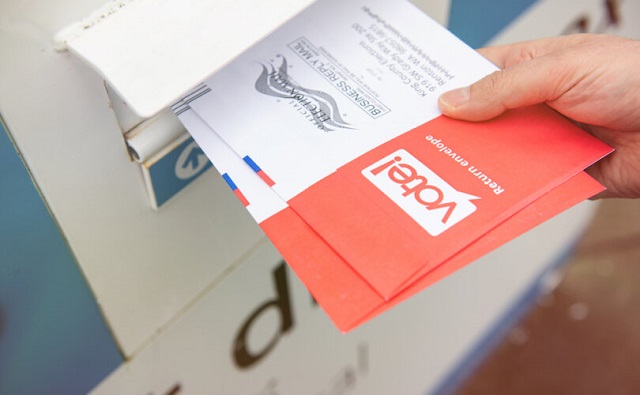National
Trudeau says he considers ‘quitting every day’ but vows to stay on as prime minister

From LifeSiteNews
Conservative Party leader Pierre Poilievre said that while Trudeau thinks about quitting, Canadians think about firing him.
Prime Minister Justin Trudeau has told Canadians that he considers quitting “every day,” but that he is determined to stay on anyway.
During a March 15 interview with Radio-Canada, the French arm of the government-funded Canadian Broadcasting Corporation (CBC), Trudeau revealed that he routinely thinks about abandoning his role as prime minister and views his job as “super platte,” a French phrase that directly translates to “super flat.”
“I think about quitting every day. It’s a crazy job I’m doing, making the personal sacrifices,” he said. “Of course, it’s super tough. It’s very challenging at times.”
However, Trudeau noted that he “could not be the man I am and abandon the fight at this point.”
Trudeau’s interview sparked controversy online as the British Broadcasting Corporation’s (BBC) originally reported that Trudeau said he found his job “super boring” when he used the French phrase “super platte.”
Shortly after, the Crown outlet changed Trudeau’s statement to “very challenging” following backlash from a Canadian columnist. The outlet failed to explain why they made the change or if Trudeau’s office had anything to do with it.
“Super platte,” which can be translated as “super boring,” could also mean “super unfortunate” or a number other of similar statements.
The interview garnished ridicule from Conservative Party leader Pierre Poilievre, who blasted Trudeau for his statement suggesting that serving Canadians is “boring.”
“Canadians are not the only ones suffering,” Poilievre Poilievre said at an “Axe the Tax” rally in Fredericton, New Brunswick this weekend.
“Justin Trudeau has it very tough,” he continued sarcastically. “You hear about this? He’s a little bit bored… incredible this quote, I gotta read these quotes here today. He said this in French in an interview with Rad Can, he said, ‘I think about quitting every day.’ Isn’t that funny? We think about firing him every day.”
“‘It’s a crazy job making the personal sacrifices,’” he added, referring to the interview.
“Yeah right, like flying off to Billionaire Island. Burning thousands and thousands of liters of jet fuel at our expense into the atmosphere. And in these 80, 90 $100,000 vacations you take – sounds like a terrible personal sacrifice,” Poilievre challenged.
“I’m quoting you: ‘Of course, it’s super tough. It’s super boring at times,’” he quoted.
“Wow. Thinks the job is boring .. [but] serving the people is not boring. serving the people is what we do,” he declared.
In the original BBC story, Justin Trudeau said he was "super bored" with being PM. That line disappeared from the story over claims of mistranslation. Really?? @PierrePoilievre says if Trudeau feels like quitting every day, Canadians feel like firing him just as frequently. pic.twitter.com/Bjixo8ZcZ6
— David Krayden (@DavidKrayden) March 17, 2024
The interview comes as a recent poll found that 70 percent of Canadians believe country is “broken” as Trudeau focuses on less important issues. Similarly, in January, most Canadians reported that they’re worse off financially since Trudeau took office.
Additionally, a January poll showed that 46 percent of Canadians expressed a desire for the federal election to take place sooner rather than the latest mandated date in the fall of 2025.
Recent polls show that the scandal-plagued government has sent the Liberals into a nosedive with no end in sight. Per a recent LifeSiteNews report, according to polls, were a Canadian federal election held today, Conservatives under Poilievre would win a majority in the House of Commons over Trudeau’s Liberals.
Frontier Centre for Public Policy
How much do today’s immigrants help Canada?

From the Frontier Centre for Public Policy
Newly arriving immigrants require housing, infrastructure and services right away. But even including other construction workers with the 2 percent who are qualified, working-age artisans, immigrants don’t come close to building the housing they occupy. Along with paying taxes to support new arrivals, oppressive housing and living costs then deter procreation for many would-be parents in the existing population.
The relationship between GDP, productivity, and immigration
It is almost universally accepted that Canada needs immigration and the corresponding population increase to keep the economy going. That is how experts say we are supposed to get economic growth along with improvements in productivity and higher per capita GDP.
But how much of that is true?
First, GDP as a measure of economic activity and national prosperity has limitations. Adjusted for both inflation and the increase in Canada’s population, per capita GDP was in free fall in 2022 and 2023—at minus 2.6 and minus 3.9 respectively.
GDP says nothing about its distribution among the population. Inflation enriches those who own housing and other hard assets, but leaves behind those who do not own them. Notably, with demand overwhelming supply, immigrants’ housing needs and other requirements generate inflation and widen the gap between rich and poor.
It is also necessary to consider what GDP comprises. There is a rough and ready distinction between investment and consumption although the distinction is fuzzy. Broadly speaking, new and more efficient machinery improve productivity, enabling workers to deliver more value for the time they spend working. The consumption part of GDP includes a long list of activities necessary for sustaining life—everything from buying groceries to fixing broken windows, retailing goods made in China, and maintaining the superstructure of government.
Conventional wisdom is that immigration is necessary to make up for the decline in the home-grown population resulting from the birth rate below replacement. But that represents a vicious circle. Much of Canada’s GDP involves building homes and infrastructure, and supporting immigrants—all consumption components. Newly arriving immigrants require housing, infrastructure and services right away. But even including other construction workers with the 2 percent who are qualified, working-age artisans, immigrants don’t come close to building the housing they occupy. Along with paying taxes to support new arrivals, oppressive housing and living costs then deter procreation for many would-be parents in the existing population.
Many employers and politicians promote immigration. That is because immigrants tend to be more industrious and reliable than young home-grown Canadians. Immigrants and their children are generally prepared to work at current pay rates without clock-watching. And there is less pressure to install labour-saving equipment when a pool of people is ready and willing to work for what they get paid.
It’s also necessary to consider that for decades, technology, robots, and more efficient use of labour have been eliminating jobs. Some estimates have it that up to a third of all current jobs will disappear over the next 10 to 15 years. All this said, I look to history and other countries for how changes in population impact productivity and community well-being. In recorded history, the biggest advances in real per capita income occurred in Europe after the bubonic plague killed about half the population between 1347 and 1352. The shortage of labour made workers much more valuable. Feudalism ended and there was a huge surge in wages rates and women’s rights.
In recent times, the population of Japan has been expanding only slowly, and is declining now. In 2023, business capital investments hit a record high at US $223 billion, up 17 percent from the previous year. The question now is whether productivity gains will be enough to sustain its ageing and shrinking population. For Canada, in contrast, per capita business investment, adjusted for inflation and population, has been declining and was sharply lower in 2022-23.
There is another problem. Too many immigrants expect to take advantage of our generous welfare. It may cost $1,000 per person per month to support an immigrant who does not immediately get a job. That must be many times more than it costs to keep that person in a refugee camp.
Of course, Canada has the duty to take in refugees at risk of persecution. And, as Singapore does, employers should be able to hire immigrants for specific top-end jobs where Canada does not have the home-grown expertise.
It is no long-term answer to support people in camps. Troubled countries—Haiti, for example—need security and business investment to enable their self reliance. Countries like Canada need to generate their own wealth to make that possible and not just for the good of our own citizens. This requires diverting GDP back to the non-residential business investment that is the lifeblood of a healthy and sustainable economy.
Colin Alexander’s degrees include Politics, Philosophy, and Economics from Oxford. His latest book is Justice on Trial.
Business
Honda deal latest episode of corporate welfare in Ontario

From the Fraser Institute
By Jake Fuss and Tegan Hill
If Honda, Volkswagen and Stellantis are unwilling to build their EV battery plants in Ontario without corporate welfare, that sends a strong signal that those projects make little economic sense.
On Thursday, the Trudeau and Ford governments announced they will dole out an estimated $5 billion in corporate welfare to Honda so the auto giant can build an electric vehicle (EV) battery plant and manufacture EVs in Ontario. This is the third such deal in Ontario, following similar corporate welfare handouts to Volkswagen ($13.2 billion) and Stellantis ($15.0 billion). Like the previous two deals, the Honda deal comes at a significant cost to taxpayers and will almost certainly fail to create widespread economic benefits for Ontarians.
The Trudeau and Ford governments finalized the Honda deal after more than a year of negotiations, with both governments promising direct incentives and tax credits. Of course, this isn’t free money. Taxpayers in Ontario and the rest of Canada will pay for this corporate welfare through their taxes.
Unfortunately, corporate welfare is nothing new. Governments in Canada have a long history of picking their favoured firms or industries and using a wide range of subsidies and other incentives to benefit those firms or industries selected for preferential treatment.
According to a recent study, the federal government spent $84.6 billion (adjusted for inflation) on business subsidies from 2007 to 2019 (the last pre-COVID year). Over the same period, provincial and local governments spent another $302.9 billion on business subsidies for their favoured firms and industries. (Notably, the study excludes other forms of government support such as loan guarantees, direct investments and regulatory privileges, so the total cost of corporate welfare during this period is actually much higher.)
Of course, when announcing the Honda deal, the Trudeau and Ford governments attempted to sell this latest example of corporate welfare as a way to create jobs. In reality, however, there’s little to no empirical evidence that corporate welfare creates jobs (on net) or produces widespread economic benefits.
Instead, these governments are simply picking winners and losers, shifting jobs and investment away from other firms and industries and circumventing the preferences of consumers and investors. If Honda, Volkswagen and Stellantis are unwilling to build their EV battery plants in Ontario without corporate welfare, that sends a strong signal that those projects make little economic sense.
Unfortunately, the Trudeau and Ford governments believe they know better than investors and entrepreneurs, so they’re using taxpayer money to allocate scarce resources—including labour—to their favoured projects and industries. Again, corporate welfare actually hinders economic growth, which Ontario and Canada desperately need, and often fails to produce jobs that would not otherwise have been created, while also requiring financial support from taxpayers.
It’s only a matter of time before other automakers ask for similar handouts from Ontario and the federal government. Indeed, after Volkswagen secured billions in federal subsidies, Stellantis stopped construction of an EV battery plant in Windsor until it received similar subsidies from the Trudeau government. Call it copycat corporate welfare.
Government handouts to corporations do not pave the path to economic success in Canada. To help foster widespread prosperity, governments should help create an environment where all businesses can succeed, rather than picking winners and losers on the backs of taxpayers.
Authors:
-

 Automotive16 hours ago
Automotive16 hours agoThe EV ‘Bloodbath’ Arrives Early
-

 CBDC Central Bank Digital Currency7 hours ago
CBDC Central Bank Digital Currency7 hours agoA Fed-Controlled Digital Dollar Could Mean The End Of Freedom
-

 COVID-192 days ago
COVID-192 days agoTrudeau gov’t has paid out over $500k to employees denied COVID vaccine mandate exemptions
-

 Addictions2 days ago
Addictions2 days agoWhy can’t we just say no?
-

 International2 days ago
International2 days agoRFK Jr tells EWTN: Politicization of the CIA, FBI, Secret Service under Biden is ‘very troubling’
-

 Business23 hours ago
Business23 hours agoHonda deal latest episode of corporate welfare in Ontario
-

 espionage24 hours ago
espionage24 hours agoOne in five mail-in voters admitted to committing voter fraud during 2020 election: Rasmussen poll
-

 Brownstone Institute6 hours ago
Brownstone Institute6 hours agoThe Numbers Favour Our Side








